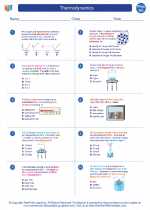Karyotyping
Karyotyping is the process of examining an individual's set of chromosomes to determine if there are any abnormalities or genetic disorders. This is typically done using a sample of blood, bone marrow, or amniotic fluid. Karyotyping can help diagnose genetic disorders such as Down syndrome, Turner syndrome, Klinefelter syndrome, and others.
Procedure
- Sample Collection: A sample of blood, bone marrow, or amniotic fluid is collected from the individual.
- Cell Culturing: The sample is cultured in a laboratory to encourage cell growth.
- Chromosome Harvesting: The cells are treated to stop cell division at metaphase, when the chromosomes are most condensed and visible.
- Chromosome Staining: The chromosomes are stained to make the banding patterns visible.
- Microscopic Examination: The stained chromosomes are examined under a microscope and photographed.
- Karyotype Analysis: The chromosomes are arranged and analyzed to identify any abnormalities or genetic disorders.
Importance of Karyotyping
Karyotyping plays a crucial role in identifying genetic disorders, determining the sex of an individual, and understanding chromosomal abnormalities. It helps in genetic counseling, family planning, and prenatal diagnosis.
Study Guide
Here are some key points to remember when studying karyotyping:
- Understand the process of karyotyping, from sample collection to karyotype analysis.
- Learn about the different types of genetic disorders that can be identified through karyotyping.
- Be familiar with the importance of karyotyping in genetic counseling, family planning, and prenatal diagnosis.
- Review the steps involved in chromosome staining and microscopic examination.
- Practice analyzing karyotypes to identify abnormalities and genetic disorders.
Understanding karyotyping is essential for anyone interested in genetics, genetic counseling, or medical diagnostics. It is a valuable tool in the field of genetics and has significant implications for individuals and families affected by genetic disorders.
[Karyotyping] Related Worksheets and Study Guides:
.◂Physics Worksheets and Study Guides High School. Thermodynamics

 Worksheet/Answer key
Worksheet/Answer key
 Worksheet/Answer key
Worksheet/Answer key
 Worksheet/Answer key
Worksheet/Answer key
